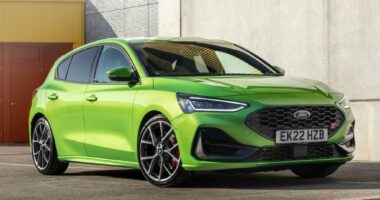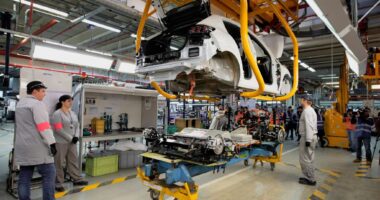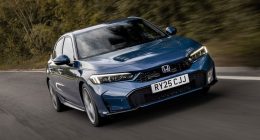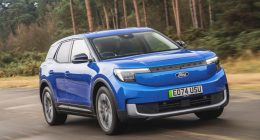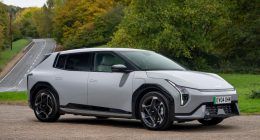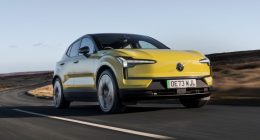The new car sales forecast has been downgraded from 1.89 million units to 1.72 million following another challenging month for UK dealers.
New car registrations fell by -15.8% to 119,167 units in April, according to the latest figures from the Society of Motor Manufacturers and Traders (SMMT).
Once again, supply chain issues continue to affect manufacturers’ ability to build – and deliver – the latest models in the volumes they had been achieving post-COVID.
Battery electric vehicles (BEVs) registrations continued to grow with 12,899 of the latest zero emission cars joining UK roads – an increase of 40.9% on the same month last year – and taking a 10.8% market share, up from 6.5% last year.
While registrations of hybrids (HEVs) also rose by 18.3%, the number of new plug-in hybrid (PHEV) registrations decreased by a third (-32.8%). As a result, electrified vehicles comprised 27.9% of all new car registrations during April.
Given the ongoing impact of part shortages, as well as the cost-of-living crisis that has been exacerbated by soaring fuel costs, the SMMT has announced it is downgrading its market outlook for the remainder of 2022, with 1.72 million new cars new cars now expected to be registered during the year, down from the 1.89 million outlook in January.
While this still represents a 4.5% rise on 2021, it highlights the effect the semiconductor shortage is still having on supply as well as anticipated impacts from rising living costs, the industry body said.
Mike Hawes – the Chief Executive of the SMMT –said, “The worldwide semiconductor shortage continues to drag down the market, with global geopolitical issues threatening to undermine both supply and demand in the coming months.
“Manufacturers are doing everything they can to deliver the latest low and zero emission vehicles, and those considering purchase should look to place their orders now to benefit from incentives, low interest rates and reduced running costs.
“Accelerating the transformation of the new car market and the carbon savings demanded of road transport in such difficult times requires not just the resolution of supply issues, however, but a broader package of measures that encourages customer demand and addresses obstacles, the biggest of which remains charging anxiety.”
The Nissan Qashqai SUV was the UK’s big-seller in April with 3,804 finding new homes followed by class rival the Ford Puma on 3,318. Rounding out the top three places was the Mini hatchback (3,088). To date, however, the Vauxhall Corsa continues to top the charts (12,799) with the Puma in second (11,846) and the Qashqai in third (11,335).



